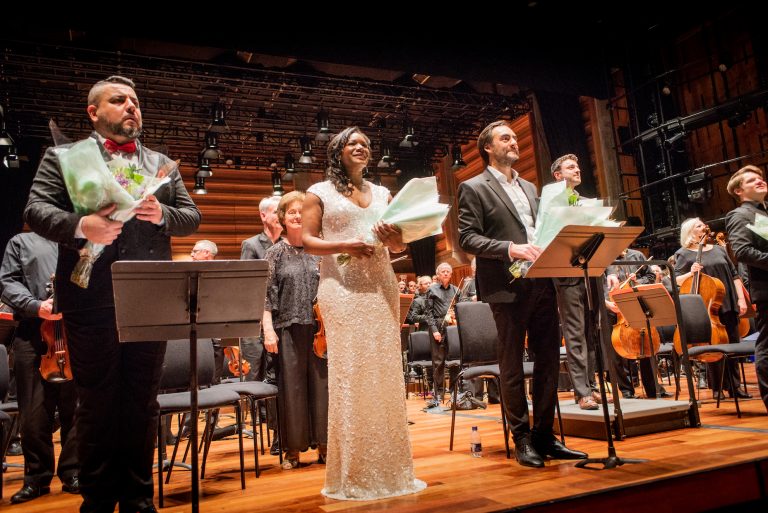Arrigo Boito’s only completed opera Mefistofele got a rare outing on 24th March at the Queen Elizabeth Hall at London’s South Bank Centre. It was performed by Chelsea Opera Group which devotes itself to include stagings or concert performances of unusual operas outside the standard repertoire. Since its remarkable origins in 1950 with the late lamented Sir Colin Davis conducting Don Giovanni, this privately run semi-professional body has gone from strength to strength relying solely on funding by donations. Future performances include Anton Rubinstein’s The Demon, Verdi’s Un giorno di regno, Pizzetti’s Murder in the Cathedral and Donizetti’s Roberto Devereux. Working with professional singers from all over the world and a semi-professional orchestra, the conductors include established names and upcoming youngsters. Sir Simon Rattle, Sir Mark Elder and Sir Roger Norrington have all conducted performances in the past.
Arrigo Boito is best known today as Verdi’s librettist for his last two operas Otello and Falstaff. He was also a journalist, novelist, poet and critic as well as translator. His ability as a composer was limited by the fact that his music was composed in time after almost all of Verdi’s operas and before Puccini’s. The Faust of the narrative, Goethe’s Faust is here lacking in dramatic cogency and sweep making the whole rather long and unwieldy. The legend of Faust the mythical scholar who sells his soul to the devil (the titular namesake of Boito’s opera) is granted him eternal peace in youthful love of his Margarita. The other Faust opera is by Gounod – the far more well known of the two on the same subject. Berlioz and Schumann also wrote incidental music on the same subject and Mahler’s Symphony no 8 uses the words of the final scene of Goethe’s Part II. Gounod’s opera (though equal in length to Boito’s) sets only Part I of the legend. Boito’s opera sets both Parts with inequality between the two: the Prologue and three of the four acts concern Part I while only act IV and the Epilogue are devoted to Part II.
Inspite of Boito’s brilliance as a young composer (he studied music at the Milan Conservatory) the premiere of Mefistofele at La Scala in 1868 was a flop. After reworking it for seven years it was reintroduced there with success and has retained a niche in the verismo tradition. It requires a huge orchestra and choral forces including a children’s chorus. The orchestration is rich, sonorous and very distinctive. Boito was obviously interested in the works of Weber and Wagner whose libretti he translated into Italian. The score is a rich mixture of arias and ensembles and rousing choruses. The Prologue sees the chorus sing the Ave, Signor degli angli and a second chorus (the Capital Arts Children’s Choir) while Mefistofele rails against this beauty. Also the chorus appears as Sorcerers and Witches as well as Nymphs in the Helen of Troy episode. All in all the choral writing is superb including difficult fugal passages and challenging Italian patter.
However this opera is made successful by the excellence of its four principal singers. Early on in the opera the supremely Italianate voice of Argentinean tenor Pablo Bemsch as Faust was glorious in his big aria Dai campi, dai prati. He gained lustre of tone and confidence of utterance as the opera went along and was unforgettable in the final scene. His was a performance to cherish. As the devil Armenian-German bass-baritone Vazgen Gazaryan was a sonorous and frighteningly real presence on stage. Elizabeth Llewellyn was a mellifluous and voluptuous Margarita. Her big aria L’altra notte was mesmerising and the following love music both tender and exciting.
And it only remains to applaud the no uncertain gifts of conductor Matthew Scott Rogers. He was a galvanizing force totally involved and involving occasionally over emphatic in his enthusiasm for the score. Chelsea Opera Group is to be congratulated in pulling off this extremely difficult venture with the utmost skill. I urge you to support this group which puts on such incredible work with no public subsidy. An evening at the opera with no grand sets, designs and costumes but still a night to remember!




